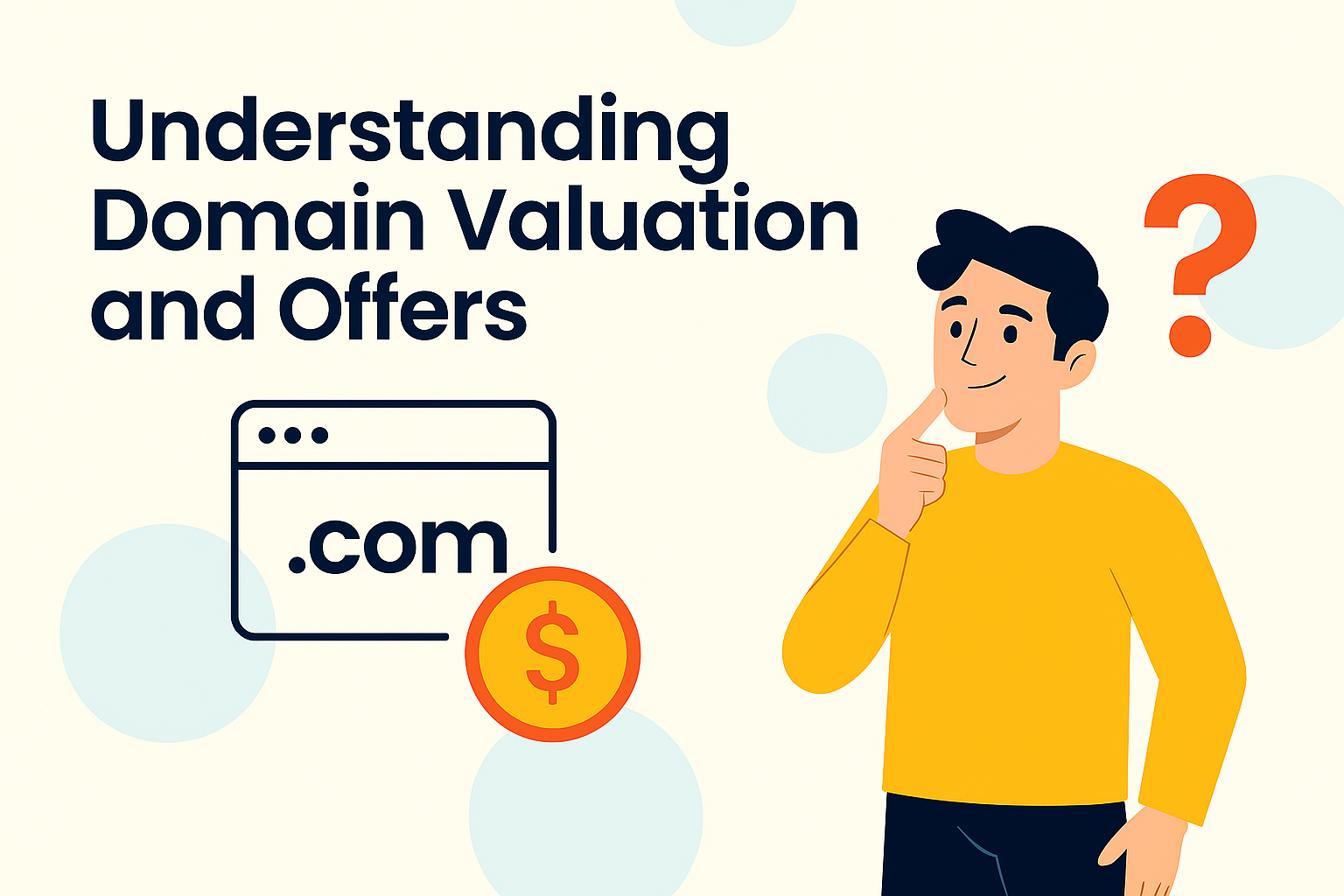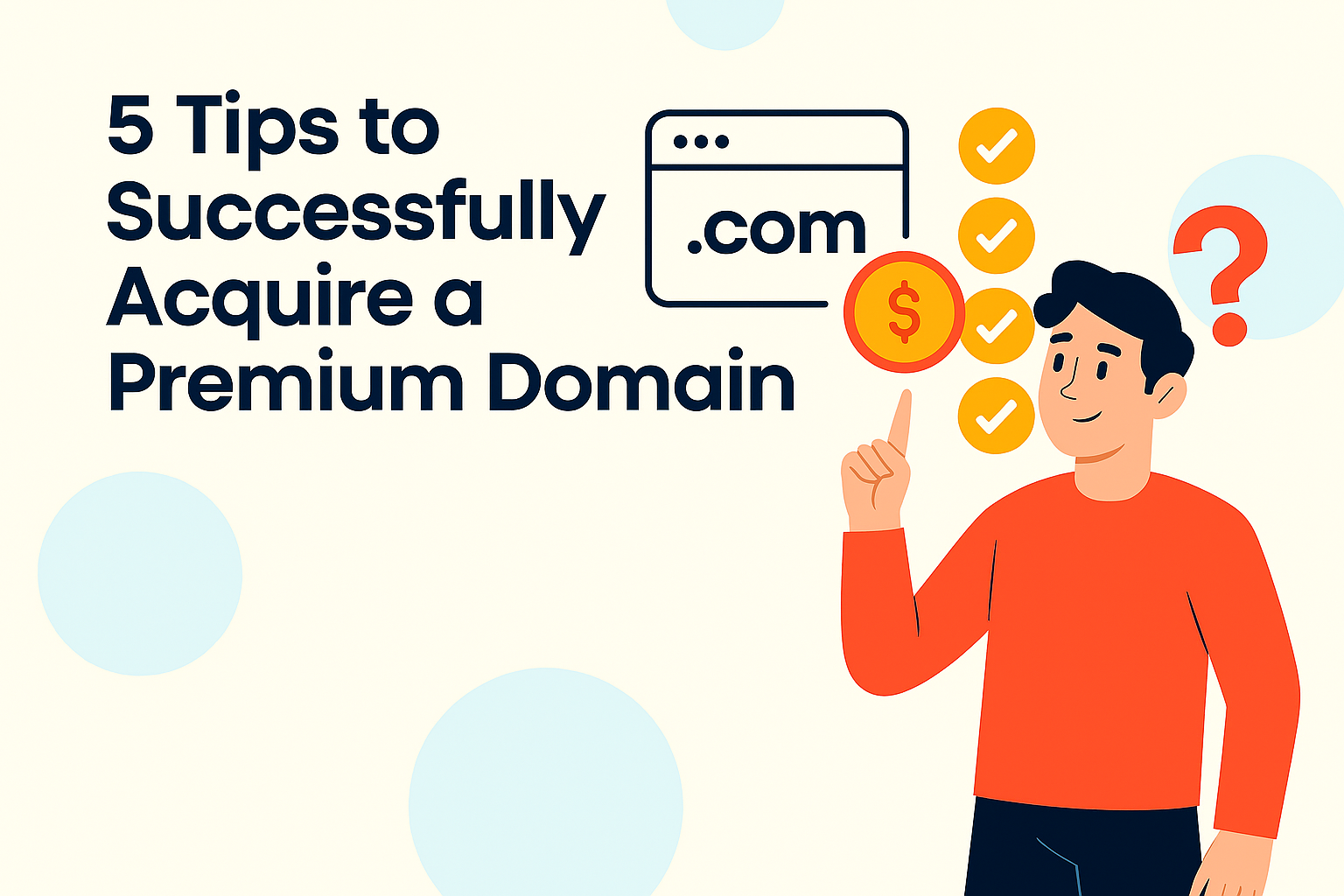Intro
Determining how much a domain is worth can be one of the most confusing parts of the acquisition process. Unlike standard products, domains don’t have fixed prices — their value depends on many factors, from demand and brand potential to SEO strength and comparable sales.
In this article, we’ll explain how domain valuation works, what influences pricing, and how to make smart, realistic offers.
1. The Key Factors That Influence Domain Value
Several key elements determine the market value of a domain. Understanding these helps you evaluate whether a seller’s asking price is fair:
- Length and Simplicity: Shorter, easy-to-remember domains tend to be more valuable.
- Keyword Strength: Domains with popular, industry-relevant keywords have higher demand.
- Extension (.com, .net, .io, etc.): .com remains the most valuable, but niche extensions can hold strong value for startups or tech brands.
- Brandability: A name that’s catchy, easy to pronounce, and visually clean adds long-term brand potential.
- Traffic and History: Existing traffic, backlinks, or SEO authority can significantly boost a domain’s price.
2. Emotional vs. Market Value
Domain owners sometimes attach emotional value to their names — especially if they’ve held them for years or believe the right buyer will pay a premium.
On the other hand, market value is based on comparable sales, demand trends, and objective quality.
As a buyer, your goal is to recognize when the price reflects real market value versus personal sentiment.
3. Using Comparable Sales and Tools
Tools like NameBio, GoDaddy Appraisal, Estibot and NameWorthAI can give you ballpark estimates and access to recent sales of similar domains.
However, automated tools often overlook branding potential and negotiation dynamics — that’s why working with an experienced acquisition broker like DNWant helps you interpret these numbers correctly and set a realistic offer range.
4. How to Make a Smart Offer
Once you’ve assessed a domain’s value, your first offer should be reasonable yet strategic — high enough to show serious intent, but leaving room for negotiation.
Avoid “lowball” offers that can alienate the seller. Instead, present your offer clearly, politely, and backed by reasoning (e.g., comparable sales or market context).
DNWant’s team helps craft professional offers that reflect true market value while maximizing your negotiation leverage.
5. The Role of Professional Negotiation
Negotiating a domain purchase isn’t only about price — it’s about timing, tone, and trust.
A professional intermediary can often achieve better results by keeping the conversation objective and confidential. At DNWant, we manage the entire process — from valuation and outreach to negotiation and secure payment — ensuring a smooth and fair transaction for all parties.
Conclusion
Understanding domain valuation helps you make informed, confident decisions when pursuing the perfect name.
If you’d like expert assistance evaluating or negotiating a domain, submit your free inquiry at DNWant.com — our experienced brokers will handle everything discreetly, professionally, and with your goals in mind.


